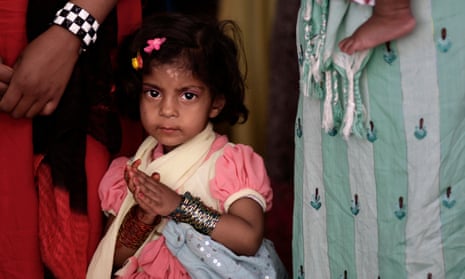Britain is falling short in its ambitions to educate the poorest and most vulnerable girls around the world, the aid watchdog has found.
The Independent Commission for Aid Impact (ICAI) said despite a commitment to helping girls, too many aid programmes lost their focus on them and in some cases abandoned targets for helping girls altogether.
In one project in Pakistan, in which out-of-school children were to be given vouchers allowing them to enrol in private schools, the vouchers were given to a relatively low proportion of girls compared with boys.
Department for International Development (DFID) staff told the review that only 43% of the vouchers were given to girls, despite them making up a higher proportion of out-of-school children in the province where the project was run.
More widely, the report found that focus on girls was lost to competing priorities, that the DFID did not have sufficient influence on government-run programmes in certain countries and that girl-focused interventions were sometimes poorly designed.
DFID’s desire for value for money risked creating an incentive to focus on those easiest to reach, rather than those most in need, like vulnerable girls.
There was also a lack of expertise among organisations tasked with delivering education to marginalised girls and difficulties with “challenging environments”.
The ICAI’s commissioner Tina Fahm, who led the review, said: “Globally, 62 million girls miss out on an education.
“The UK Government has made a strong commitment to tackling this huge problem, but has struggled to maintain the focus on girls and on results for marginalised girls in particular.
“Weaknesses in performance means that girls, and especially hard-to-reach girls, are less likely to get the education which they so desperately need to improve their life chances.
“We welcome DFID’s significant investment in girls’ education but DFID now needs to improve its focus and performance to make a difference to as many lives as possible.”
The report rated DFID’s performance as “amber-red” - “requiring significant improvement to ensure a clear, strategic direction, and to tackle a pattern of under-performance”.
The ICAI said the department should develop a clear strategy for supporting marginalised girls, monitor aid programmes to ensure focus on girls is not lost, and better balance cash concerns with equality considerations.
